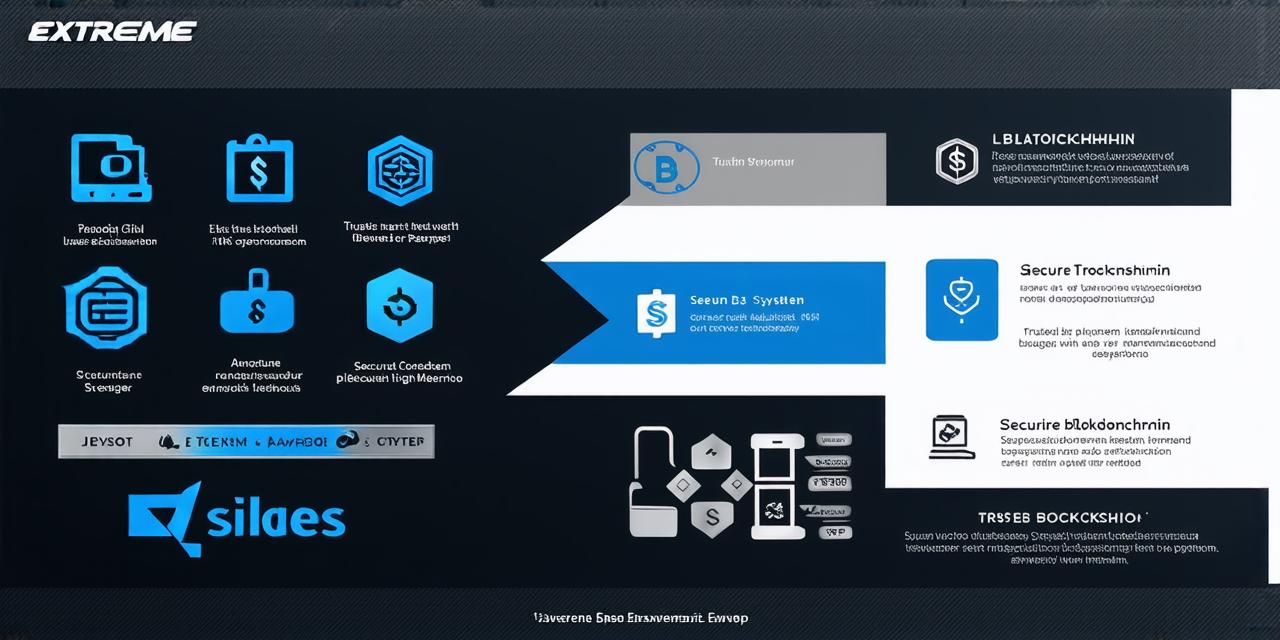What is True about Blockchain in Relation to Cryptocurrency?
Blockchain technology has revolutionized the way transactions are recorded and verified on the internet. With the advent of cryptocurrencies like Bitcoin, Ethereum, and others, blockchain technology has gained immense popularity. In this article, we will explore what is true about blockchain in relation to cryptocurrency.
What is Blockchain?
Blockchain is a decentralized, distributed ledger that records transactions across a network of computers. It was initially designed for the Bitcoin digital currency but has since been adopted by various industries like finance, healthcare, and supply chain management.
The key features of blockchain technology include:
- Decentralization: There is no central authority controlling the blockchain network, making it resistant to censorship and fraud.
- Transparency: All transactions on the blockchain are publicly available and can be verified by anyone on the network.
- Immutability: Once a transaction is recorded on the blockchain, it cannot be altered or deleted.
- Security: The use of cryptographic algorithms ensures that the data on the blockchain is secure and tamper-proof.
What is Cryptocurrency?
Cryptocurrency is a digital or virtual currency that uses cryptography for security and is decentralized, meaning it is not controlled by any central authority or government. The most well-known cryptocurrency is Bitcoin, but there are many others like Ethereum, Litecoin, Ripple, and more.
Cryptocurrencies operate on the blockchain technology, which allows for secure and transparent transactions without the need for intermediaries like banks.
What is True about Blockchain in Relation to Cryptocurrency?
- Blockchain is the underlying technology that enables cryptocurrency to exist.
- Cryptocurrency is not a traditional currency but rather a digital asset that uses blockchain technology for security and transparency.
- The value of cryptocurrency is determined by supply and demand, just like traditional currencies.
- Cryptocurrency transactions are recorded on the blockchain, making them secure, transparent, and resistant to fraud.
- Cryptocurrency can be used for a variety of purposes, including online purchases, remittances, and investments.
- The use of cryptocurrency is still relatively new, and its adoption by mainstream financial institutions and businesses is ongoing.
- Cryptocurrency is highly volatile, with significant price fluctuations in the short term.
- Cryptocurrency transactions can be subject to regulatory scrutiny and may be subject to taxes in some jurisdictions.
- The use of cryptocurrency for illegal activities like money laundering and terrorism financing is a growing concern.
- Blockchain technology has the potential to revolutionize many industries beyond finance and cryptocurrency, including supply chain management, healthcare, and voting systems.

Case Studies and Personal Experiences
One of the most well-known examples of blockchain in relation to cryptocurrency is the Bitcoin network. Bitcoin was the first cryptocurrency to use blockchain technology, and it has since inspired many other cryptocurrencies like Ethereum, Litecoin, and others. The success of Bitcoin has demonstrated the potential of blockchain technology to enable secure and transparent transactions without intermediaries.
Another example is the use of blockchain in supply chain management. Blockchain technology can be used to track products from their point of origin to their final destination, providing transparency and reducing fraud. This can have a significant impact on industries like food production, pharmaceuticals, and logistics.
Personal experiences with blockchain and cryptocurrency are also common. Many people have invested in cryptocurrencies and have seen significant returns, while others have lost money due to market fluctuations. The use of blockchain technology for secure online transactions has also become increasingly popular, with many people using it for online purchases and remittances.
Research and Experiments
There have been numerous studies and experiments conducted on the effectiveness of blockchain technology in various industries. For example, a study by Accenture found that blockchain technology could reduce costs and increase efficiency in supply chain management by up to 40%.
